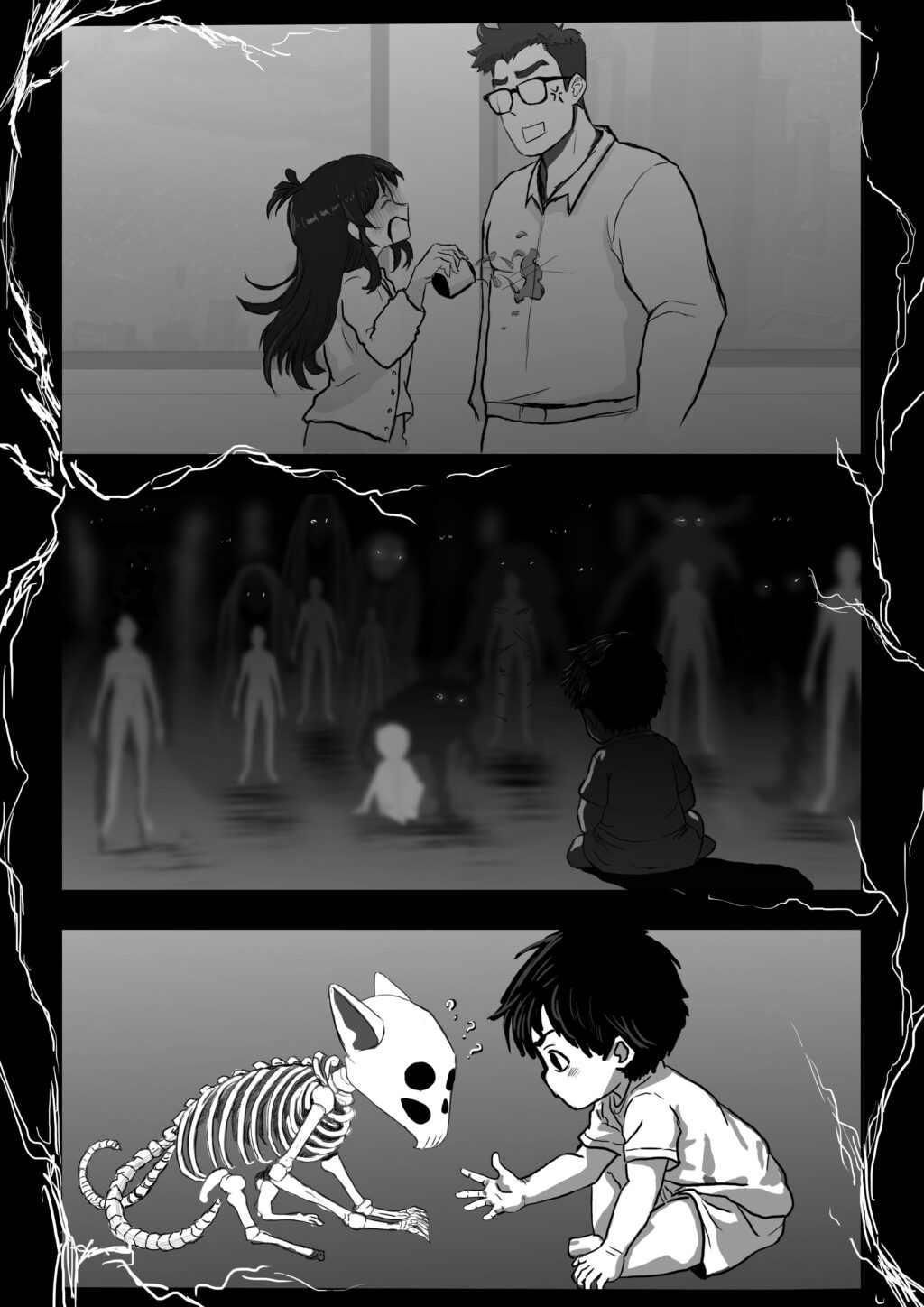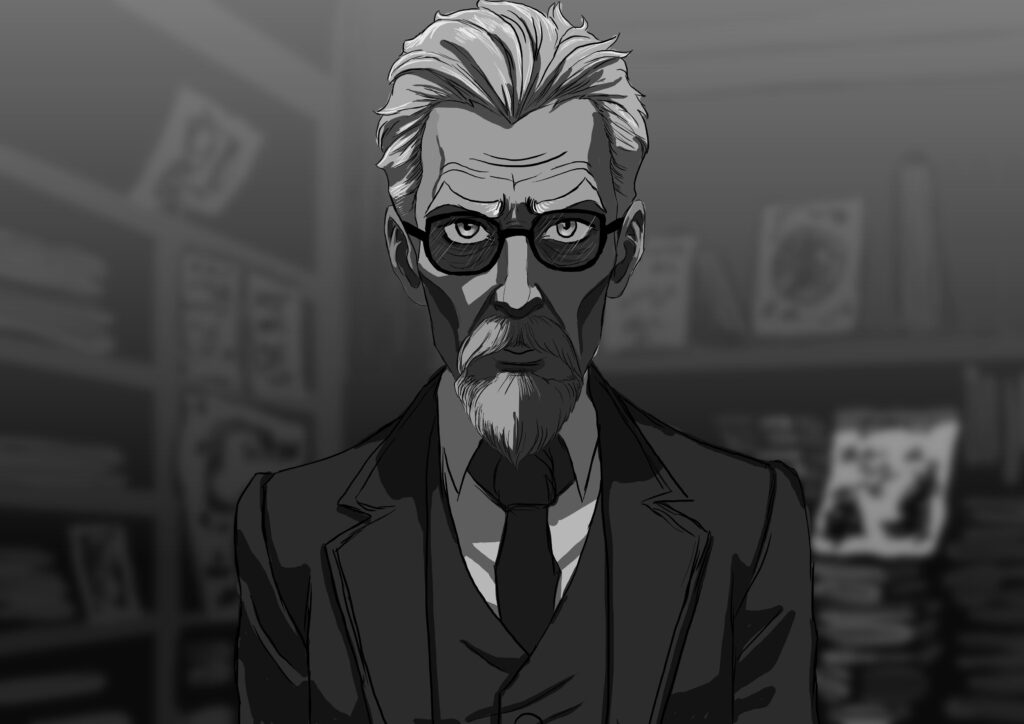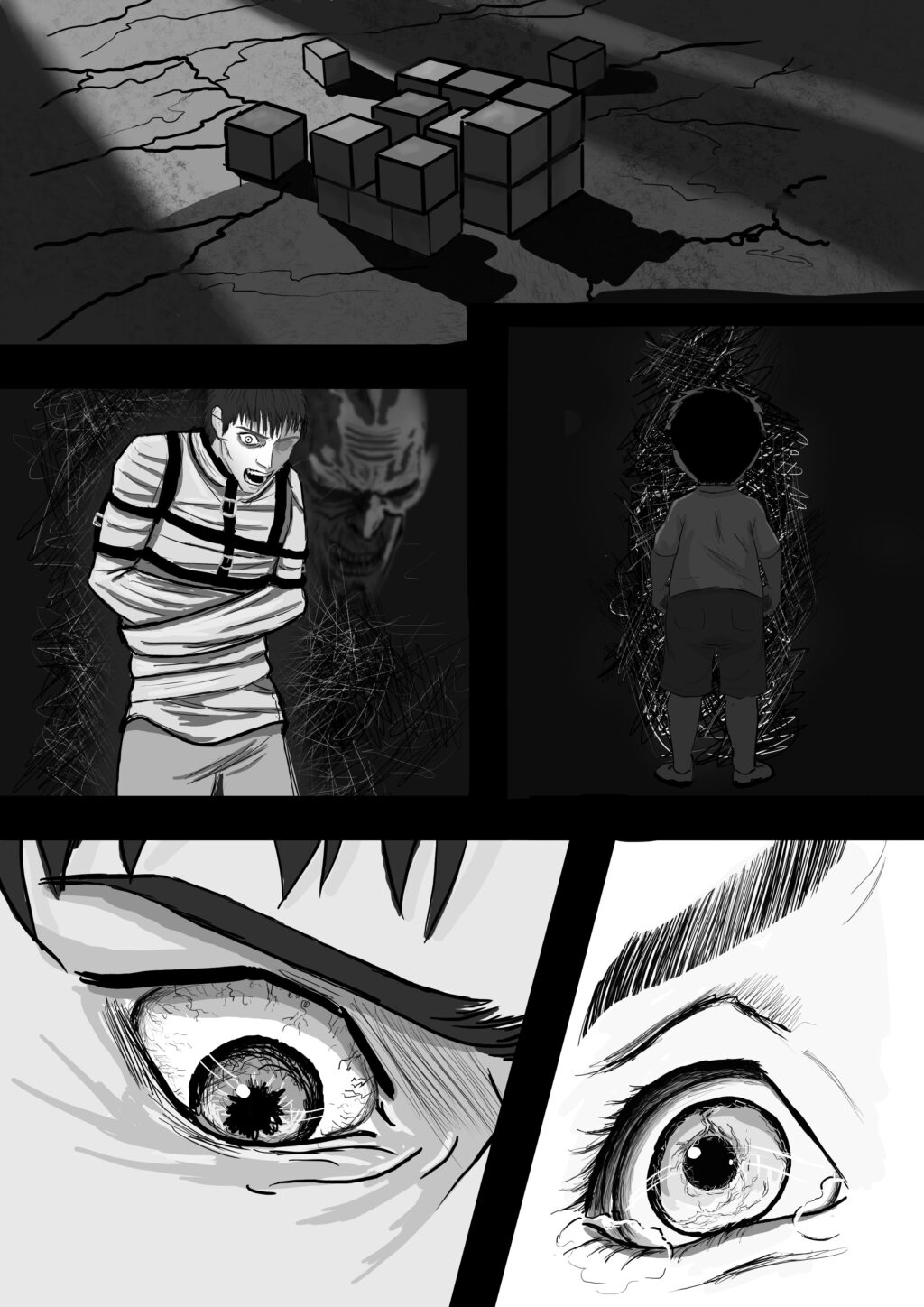Chapter 8 – Parental fear and the emergence of the illness
by Valerijs– I met your father when I was in my fourth year at university. It happened during my internship at the company where he held a senior position. And to be honest – the first meeting wasn’t pleasant. Not for him, anyway.
It was my very first day, and I wanted to make a good impression – show how hardworking I was. So when the lunch break was announced, I decided to skip the break, just grab a quick coffee and get back to work. I rushed out of the office, turned a corner – and crashed straight into him. The coffee spilled. Right on him. He yelled, furious, called me stupid – and walked away.
Six months later, we were married.
But you didn’t arrive until five years after that. We waited for so long, and when you came – it felt like a miracle. We were overwhelmed. You were beautiful. Always smiling. Always laughing. Your father never let you out of his arms. You were his boy. His heir.
He talked about your future all the time. What you’d grow up to be. Who you could become. We planned everything together – school, trips, dreams, hopes.
By two, you were walking and starting to speak… but that’s when we first noticed it. You didn’t look at us. Not really. Not at people. Your gaze always drifted just above them – as if something was floating above their heads. You wouldn’t focus on faces, on eyes. Not even ours.
And the older you got, the stranger it became. You didn’t just avoid eye contact – you started talking. But not to us. You were speaking to… someone. Something. Laughing. Responding. Playing.

And in the rare moments when we managed to catch your attention, you’d tell us about these… beings. Creatures, you said, that floated above living things. All of them different. All of them fascinating. You said they kept you company. And with them, you were never alone.
We went from one specialist to another. Each time, you told the same story – the same words, the same certainty. But no one seemed to care.
They all gave us the same answer: autism… or maybe early schizophrenia. But they couldn’t be sure – not until you turned five. That age, they said, was the threshold.
*“It could all be a defense mechanism”, one of them told us. “A way to hide from some emotional trauma. He may have created these beings to protect himself”. “He might just be living in a world of fantasy”.
For your father, that wait became unbearable.
All the dreams he’d built around you – they collapsed.
He broke. He started to distance himself. He stopped talking about the future.
He began to avoid you. He was ashamed.
And I… I wasn’t strong either.
I began to fall apart too.
One afternoon, we were at a playground. You were there, among other children, running around… but you weren’t really with them. You moved through their games like you were in a different world.
They laughed. You floated.
I sat on the bench, watching you – and something in me snapped. I started to cry. I tried to stop, but I couldn’t. Then I felt someone sit beside me. A woman – elderly, gentle. She looked at me with kind eyes and asked:
– May I speak with you?
I wiped my face, looked at her – I didn’t want to talk to anyone. But because of her age, I nodded.
– Darling, why are you crying? Has something happened?
And I broke again. The tears poured. And at that moment – you ran over. You saw me crying, and without hesitation – you hugged me.
The woman smiled.
– Hello, little one. What’s your name?
And something impossible happened. For the first time in your life – you had a conversation with someone. A real one. You answered her questions. You asked some of your own. You looked at her. You touched me, gently, protectively. I can’t even remember what you two talked about. I couldn’t process it. I just stared. I wanted to scream – from happiness.
You ran back to the playground eventually, and only then did I come back to myself. I told her everything. The whole story. She listened, quietly, patiently.
Then she was silent for a moment. And finally said:
– I believe you. I do. I don’t know how to help you… but I know someone who might.
– Who? Who is it? Please… tell me.
– My grumpy husband – he’s a psychiatrist at a psychiatric hospital. I’ll be honest with you: his way of thinking is far from standard. That’s why he won’t rush to make judgments. Take down his number, I’ll tell him to expect your call.
We spoke with him that very evening, and the next day we went to meet him. At the gates, a staff member greeted us and led us across a vast green lawn where several patients were walking in quiet, irregular patterns.
You couldn’t take your eyes off them.
Something about them held you in complete focus – like they carried secrets only you could see.
We were brought to his office. The staff member knocked. From inside came a sharp voice:
– Do not disturb!
The staffer smiled, cracked the door open slightly, and leaned in.
– Professor, you have visitors.
We stepped inside.
The man who stood before us was in his seventies – pleasant-looking, well-kept. He wore a tailored blazer, had short white hair swept back neatly, and a matching mustache and beard. I remember thinking, even before he introduced himself – this must be the professor. And I was right.

He turned out to be a brilliant, eccentric man – rejected by the academic community because of his unconventional theories about parallel realities. But just like with his wife, you connected with him instantly. It was almost… natural.
He was the first and only specialist who, by the second meeting, had the courage to ask me for permission to speak directly to your… companion.
And from the moment those conversations began, I swear – it felt like there were three people in the room, not two.
The professor would greet you and then, with a nod, address the space beside you –
– And good morning to you as well.
And when the session ended:
– Until next time, both of you.
We began visiting regularly. And slowly, you started to change. To grow. You became… if I can say it – more normal.
The professor somehow managed to explain – through you – to your companion that it would help you to behave a certain way in public. And it worked.
You began interacting with people. Talking, making eye contact. He even asked your father and me to accept your way of seeing the world – to stop trying to rip you out of it.
To join you in it.
At first it felt absurd.
But then we got used to it.
In public, you played the part.
At home, we let you live in your world.
Things began to settle.
And then – everything ended. Suddenly. And under very strange circumstances.
I remember it clearly – a Tuesday, eleven a.m. We arrived for a scheduled consultation. A staff member asked us to wait in the corridor. Something was clearly wrong. All the patients were locked in their rooms. The staff ran back and forth with urgent, hushed voices.
I heard one whisper to another:
– One of them bit off a nurse’s finger.
You were sitting beside me, calmly playing with a Rubik’s cube the professor had given you during one of your first sessions – a gift to strengthen your thinking.
I didn’t know whether to stay or leave.
No one gave us any instructions.
And then – I saw him.
The professor.
He was walking down the hallway, straight toward us. Behind him – a tall, thin man in a straitjacket, held by two orderlies. As they approached, the professor lifted a hand and gestured for the others to stop. He took three slow steps toward us.
– Good morning, Liza. Gobby, I greet you, my friend. (He was looking at you – but somehow, it felt like he greeted twice.)
– I’m afraid something’s happened. An emergency. I won’t be able to see you today.
I was about to nod and ask when we should come back – when I heard the sound.
A sharp crack. Plastic on tile. The Rubik’s cube had shattered.
I turned – and so did the professor – and we saw it:
You were frozen. Staring. The patient was staring back at you – grinning. Blood glistened on his teeth.

And then you began to scream. A high, broken, hysterical scream that didn’t stop.
The professor immediately ordered the man to be taken away, and then spent the next two hours alone with you behind a closed door.
When you came out, you were… different.
Drained. Like something had been taken. Hollowed out.
The professor followed after you, his expression heavy. He handed me a prescription. And said quietly:
– Everything will be fine now.
His words shocked me.
The way he said them.
So I asked:
– What do you mean? What will be fine?
– Gobby… After this…
HE’LL BE A NORMAL CHILD.

0 Comments